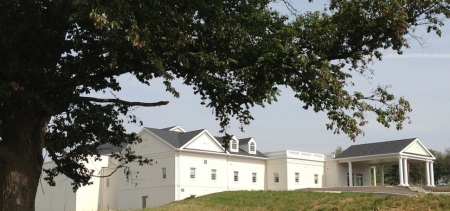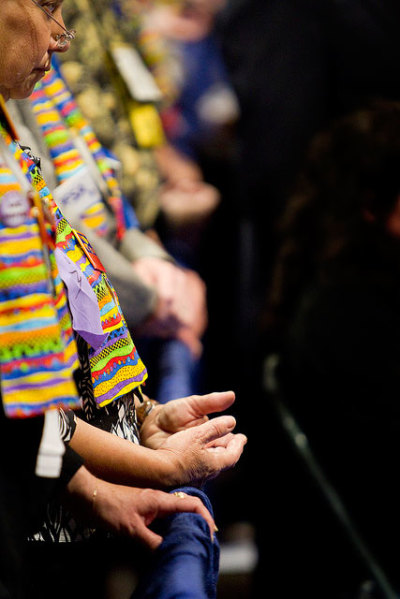Pennsylvania Congregation Pays United Methodist Church $100K to Leave Denomination Over Homosexuality Debate

A congregation in Pennsylvania has voted overwhelmingly to leave the United Methodist Church over the growing debate that the mainline denomination is having regarding its position on homosexuality.
Wesley Church, a congregation in Quarryville that has an average weekly worship attendance of about 650, voted to leave the UMC after months of discernment.
Chris Lenhart, associate pastor at Wesley Church, told The Christian Post that leadership for the congregation saw a "considerable chasm forming between what Wesley believed and affirmed about the nature of God's word and what the denomination believed and affirmed about the nature of God's Word.
"The primary issue for us leaving revolved around biblical authority. Wesley Church believes and affirms that God's Word is fully inspired and inerrant and fully authoritative on all matters pertaining to our lives," said Lenhart.
"We were indeed disappointed by the, 'peripheral' decisions coming from the denomination, but saw them as symptoms of a greater issue."

In contrast to other mainline Protestant denominations, the UMC officially considers homosexuality "incompatible with Christian teaching" and forbids clergy from performing gay weddings.
The UMC also prohibits the ordination of noncelibate homosexuals and defines marriage as being between one man and one woman.
Despite the official rules, there is a movement within the UMC to change the rules as well as the language within the Book of Discipline.
Advocacy groups like Reconciling Ministries Network, Methodist Federation for Social Action, and Methodists in New Directions have lobbied for the changes, with measures being voted on at past General Conferences.
Some, especially those on the conservative side of the sexual ethics debate, have argued for a schism within the UMC, given the vast difference in opinion on sexual ethics.
Others, including most notably the Rev. Adam Hamilton, senior pastor of the megachurch United Methodist Church of the Resurrection in Leawood, Kansas, have lobbied for individual congregations to determine whether or not to follow the Book of Discipline's position on homosexuality.
Regarding Wesley Church's process to leave the UMC and become non-denominational, Lenhart sees it "as a grass roots effort within our congregation.
"We began the process with a straw-poll just to get an idea of the congregation's heart regarding the matter. The vote came back overwhelming in favor, by more than 95 percent, of our leadership investigating a possible withdrawal from the denomination," said Lenhart.
"After five months of prayer and regular meetings with leadership within our church and the United Methodist denomination, a settlement was reached."
In return for being allowed to keep their church property, Lenhart noted, Wesley Church agreed to pay the UMC $100,000.
With the conditions noted, the congregation then voted 97 percent in favor of leaving the UMC. As of June 5, Wesley Church ceased belonging to the UMC.
Lenhart told CP that since leaving attendance at Wesley Church has increased and that the congregation is now considered a non-denominational church.
"Our hope is that the United Methodist churches whom feel strongly about the inspiration of Scripture, biblical inerrancy and biblical authority would prayerfully consider what God's will is for their particular church," said Lenhart.
"We understand that God's will for some of those churches may be to stay and fight from within, but it was clear for us, in our particular situation, that it was time to move on."





















